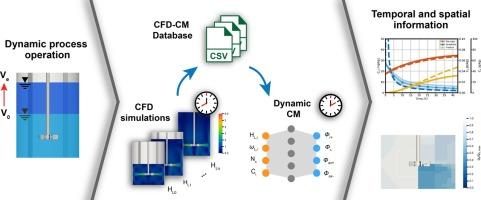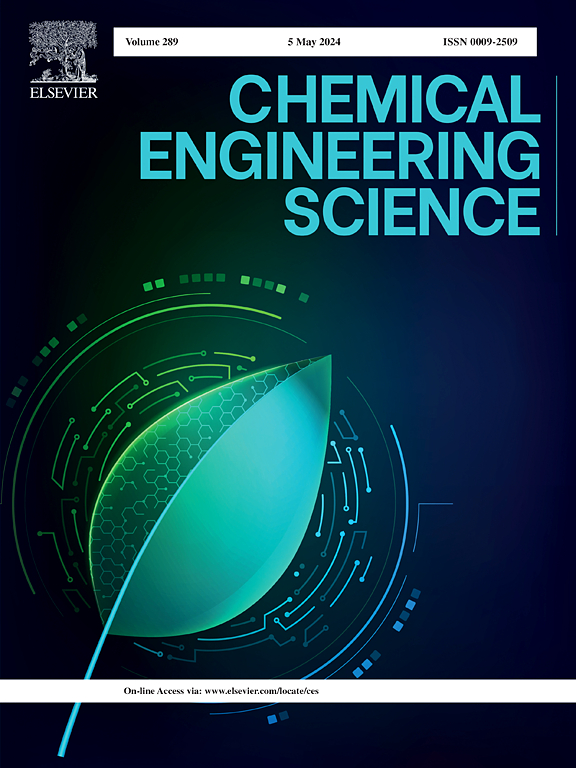Dynamic compartment models: Towards a rapid modeling approach for fed-batch fermentations
IF 4.1
2区 工程技术
Q2 ENGINEERING, CHEMICAL
引用次数: 0
Abstract
Anticipating the occurrence and effects of mass transport limitations during fermentation scale-up is essential for commercialization, as heterogeneities might affect microorganisms. Tools like Computational Fluid Dynamics (CFD) aid this analysis but are computationally intensive, limiting design space exploration and consequently, fermentation optimization. Compartment models (CMs) based on CFD simulations offer an affordable alternative but require CFD recalibration with changing geometries or operating conditions, restricting their usage in optimization.
In this work, we introduce a hybrid machine-learning-aided compartment model (ML-CM) that accounts for flow pattern dynamics upon changes in both volume and stirring speed in a stirred tank bioreactor. The ML-aided dynamic compartment model (dyn-CM) enabled the spatiotemporal study of a process in 1/500th of the fermentation simulation time, maintaining reasonable accuracy. This method facilitates fed-batch fermentation modeling, process optimization, and scale-up effect analysis with modest computational resources, supporting reactor design and operational improvements within a defined operating space.


求助全文
约1分钟内获得全文
求助全文
来源期刊

Chemical Engineering Science
工程技术-工程:化工
CiteScore
7.50
自引率
8.50%
发文量
1025
审稿时长
50 days
期刊介绍:
Chemical engineering enables the transformation of natural resources and energy into useful products for society. It draws on and applies natural sciences, mathematics and economics, and has developed fundamental engineering science that underpins the discipline.
Chemical Engineering Science (CES) has been publishing papers on the fundamentals of chemical engineering since 1951. CES is the platform where the most significant advances in the discipline have ever since been published. Chemical Engineering Science has accompanied and sustained chemical engineering through its development into the vibrant and broad scientific discipline it is today.
 求助内容:
求助内容: 应助结果提醒方式:
应助结果提醒方式:


